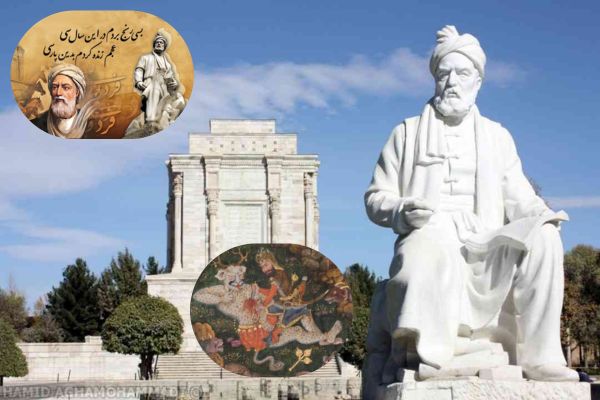Ferdowsi: The Bard of Persia
Abul-Qasem Ferdowsi (c. 940-c. 1020) stands as one of the greatest literary figures in Persian history. Hailing from the village of Pazh, near the city of Tus in Khorasan, Iran, he was born into a family of Iranian landowners. Though details of his early life remain shrouded in mystery, his name is inextricably linked to a single, monumental work: the Shahnameh, or "Book of Kings."
Ferdowsi embarked on this epic endeavor around 977, aiming to preserve and celebrate the rich history and mythology of Persia. He drew inspiration from earlier works, including the prose Shahnameh of Abd-al-Razzaq, but his contribution was unparalleled in scope and artistry. The poem, composed in the elegant and expressive Persian language, spans over 60,000 verses and recounts the legendary history of Persia from its mythical origins to the Islamic conquest.
Ferdowsi's dedication to his craft was extraordinary. It is said that he spent over thirty years composing the Shahnameh, sacrificing personal wealth and comfort for the sake of his artistic vision. The poem's completion coincided with the reign of the Ghaznavid Sultan Mahmud, a Turkic ruler who, despite his patronage of Persian culture, was ultimately more interested in Arab and Islamic traditions.
Ferdowsi's hopes for generous rewards were dashed when the Sultan offered a sum far below his expectations. Disillusioned and angered, the poet is said to have distributed the money to the poor and included scathing verses criticizing the Sultan in the Shahnameh.
Despite the challenges he faced, Ferdowsi's legacy is secure. The Shahnameh is considered the national epic of Iran and has had a profound influence on Persian literature and culture. It is a treasure trove of myths, legends, and heroic tales that continue to inspire and captivate readers centuries after its creation. Ferdowsi, the "Bard of Persia," is revered as a national hero for his role in preserving and promoting the Persian language and heritage.
Sokhanvar information
Published on Aug. 14, 2024, 12:06 p.m. by @admin
- Name: Abul-Qasem Ferdowsi
- Persian Name:: نام به فارسی
- Alias: Ferdowsi
- Comments: 0
- Views: 677
Works
Ferdowsi's literary output is primarily defined by his magnum opus, the Shahnameh. This epic poem, composed over three decades, is a monumental work of Persian literature, chronicling the history of Persia from mythical origins to the Islamic conquest. While other works have been attributed to him, including the narrative poem Yusuf and Zuleikha, the Shahnameh remains his indisputable masterpiece and the cornerstone of Persian cultural identity.
Books
- No books added yet.

